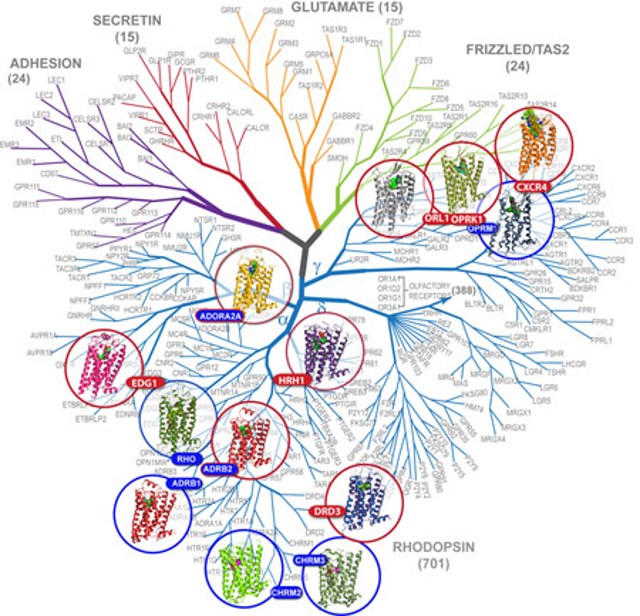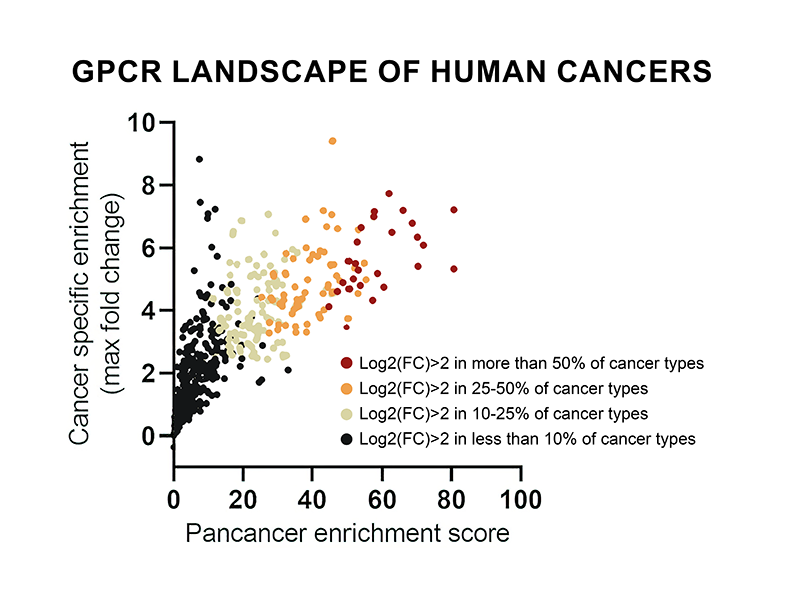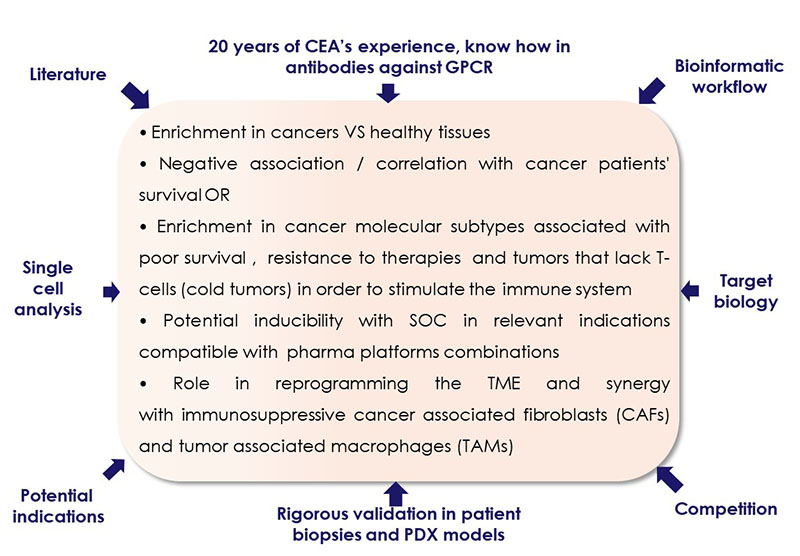GPCR PROTEINS
At Skymab, we aim to address this gap by focusing on the G-protein-coupled receptor (GPCR) superfamily, the largest group of cell-surface proteins.

GPCR targets are a major targets family:
50% of approved drugs target GPCRs
33% of approved small molecules targe
Skymab’s approach to developing ADC against GPCR tumor antigens is very innovative and relevant. GPCRs constitute a large therapeutic target reservoir that remains poorly exploited in the ADC field.
Skymab has developed a bioinformatic pipeline to explore the onco-GPCRome and select the most relevant GPCR targets for ADCs development using criteria.


